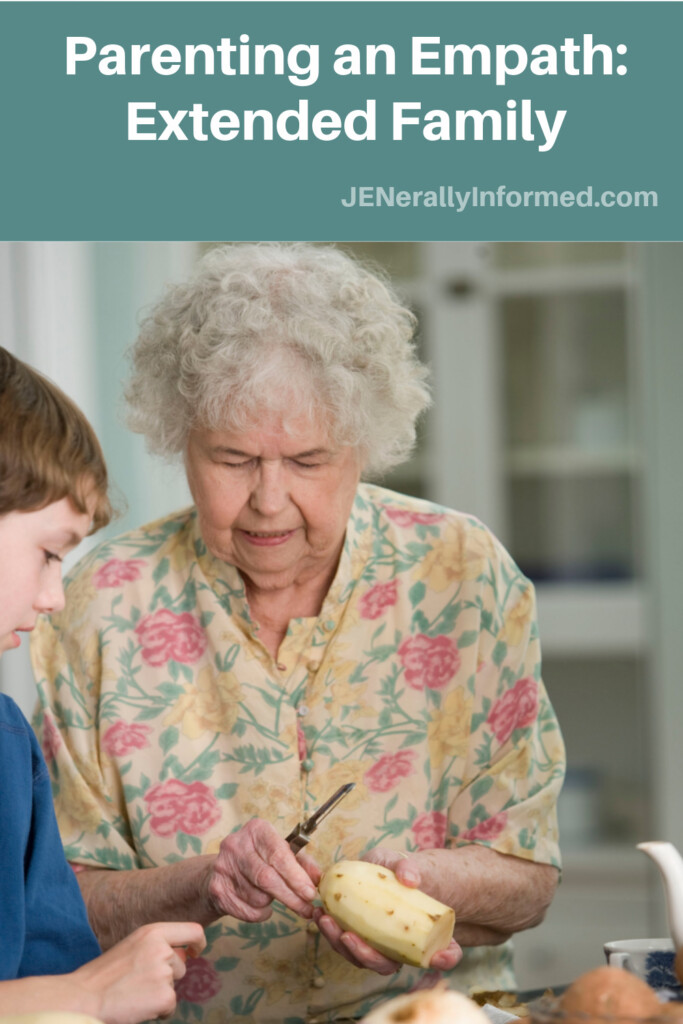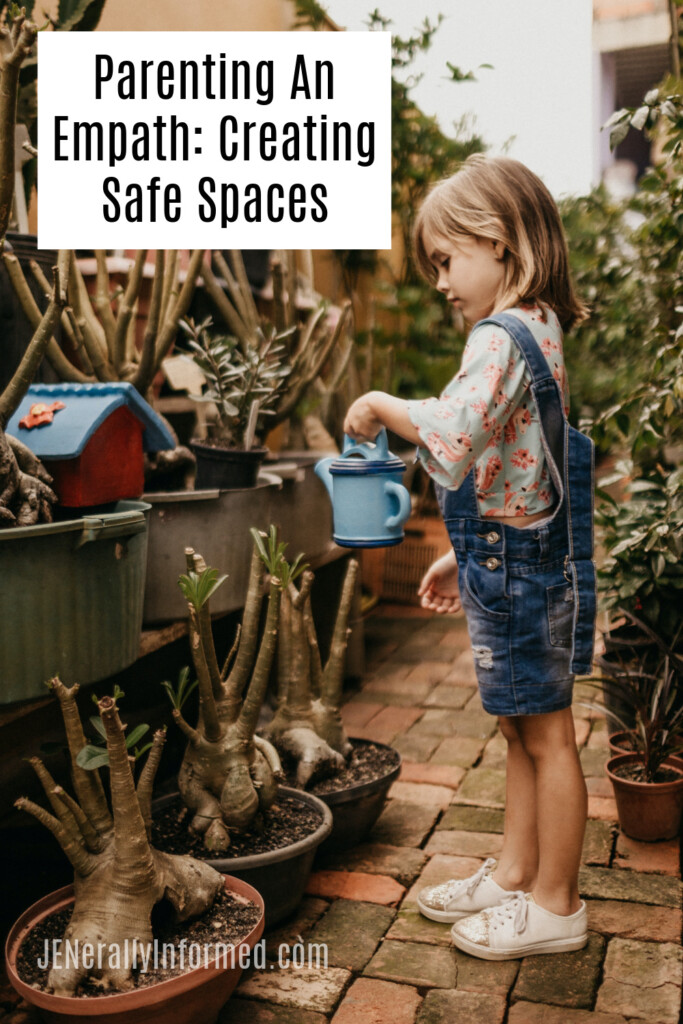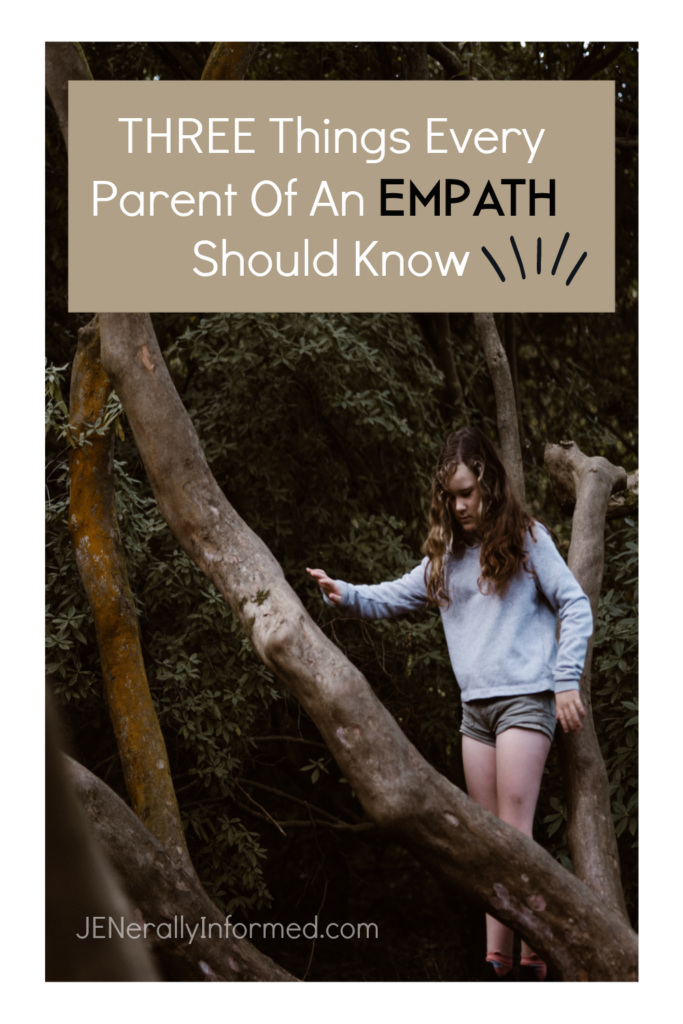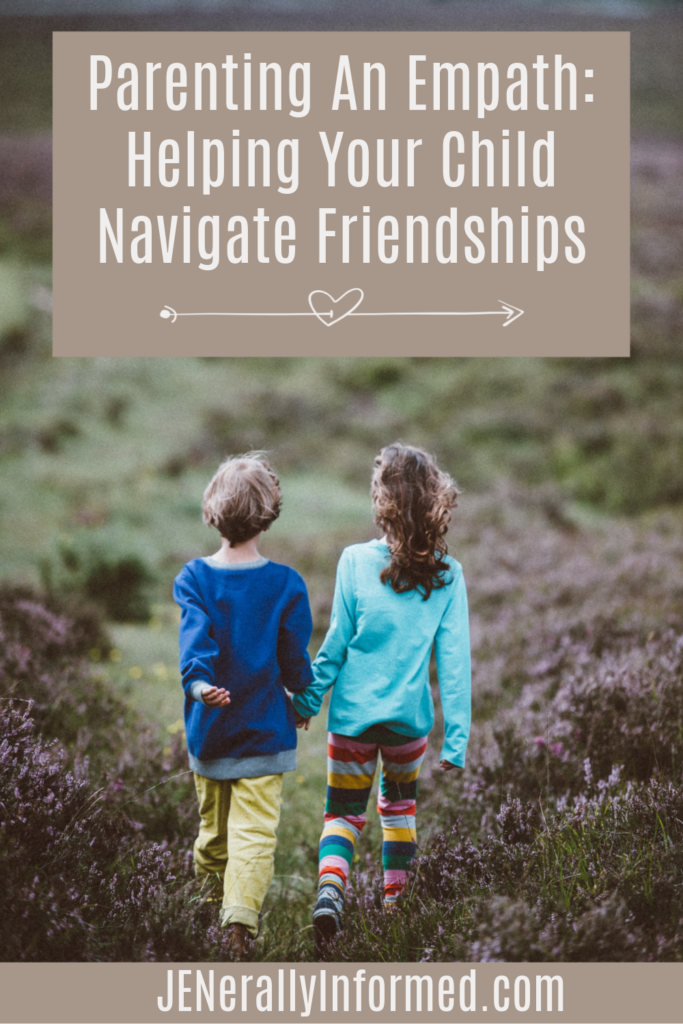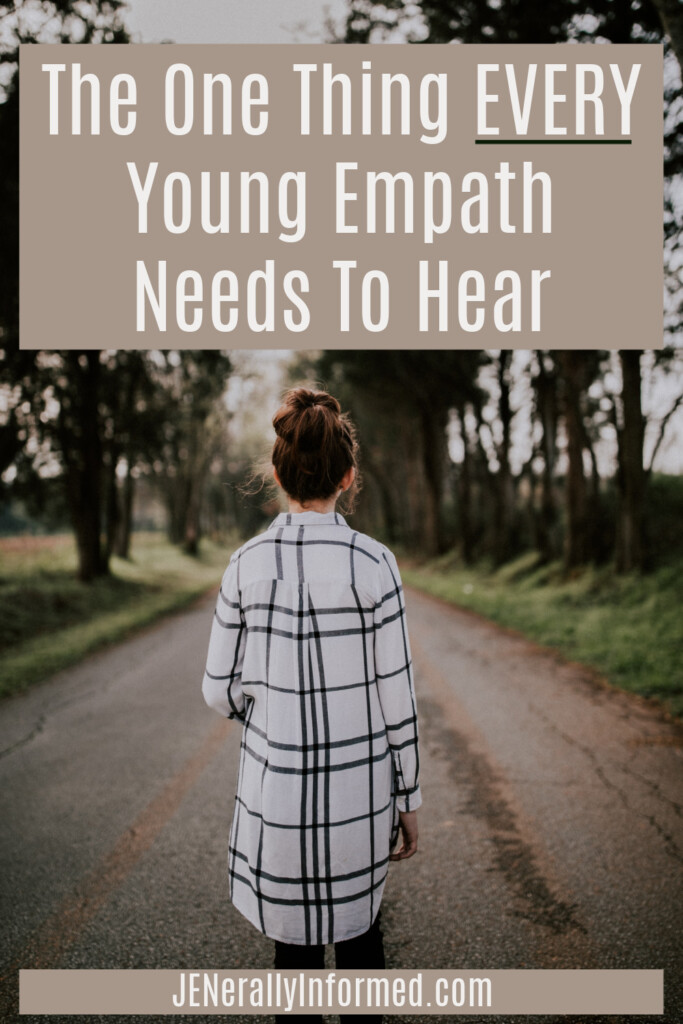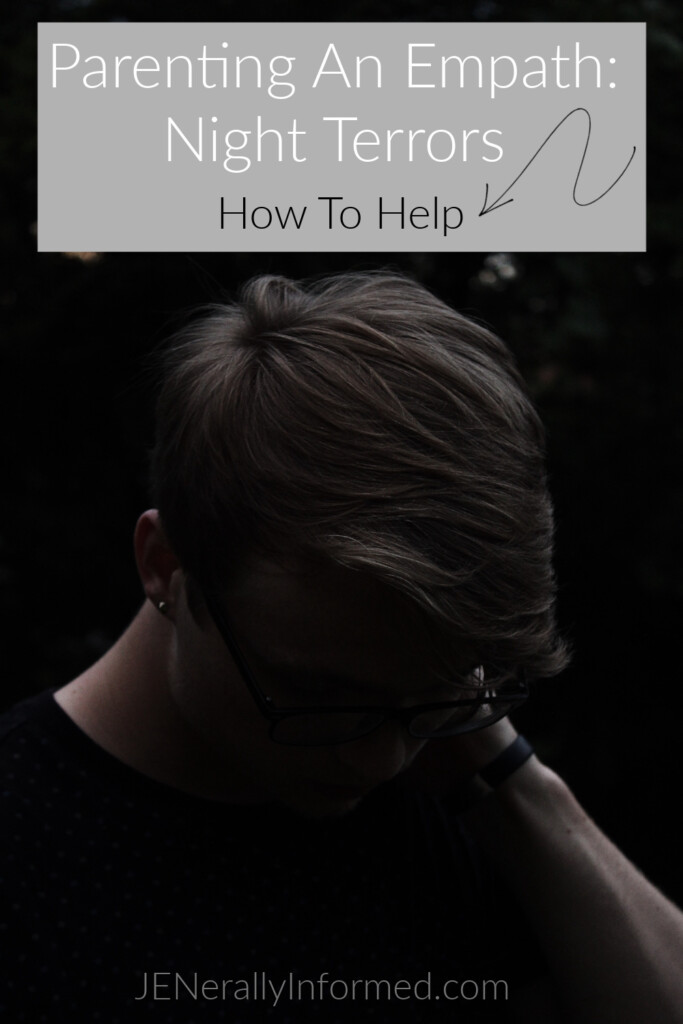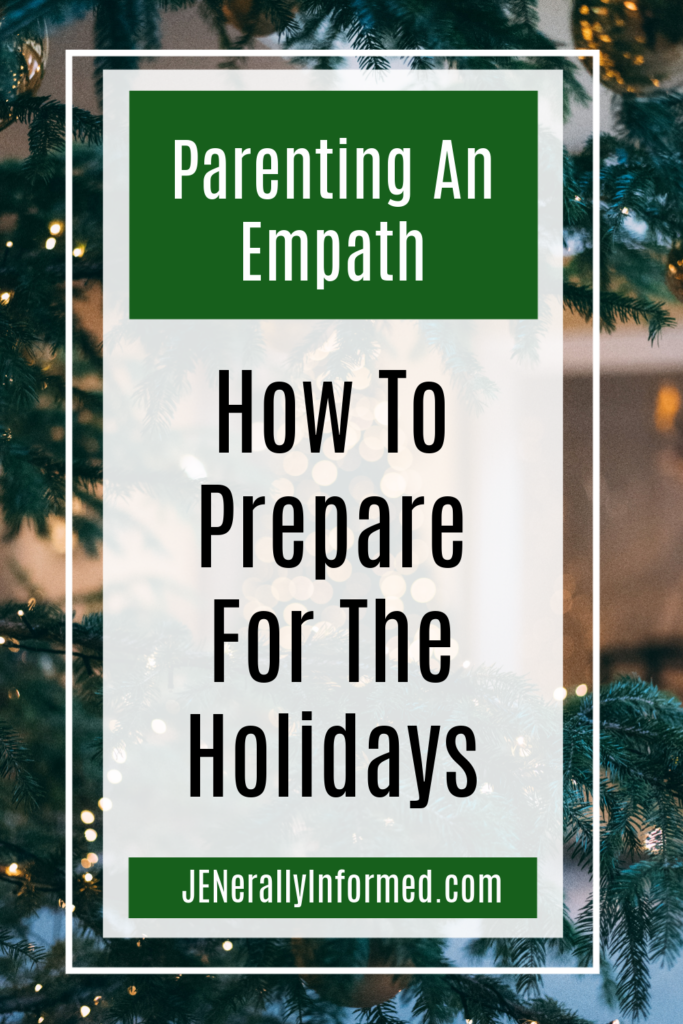Since I began writing about my own experience of parenting empaths I have had several parents reach out to ask me if I had any tips or ideas on helping them to decipher if their child was an empath. I know that this can be a little tricky since we are talking about young children, tweens, and teens. Their personalities are changing and emerging. It does become a little easier when you already have one child that you have deduced is an empath so that you can watch for similar traits in other children. But figuring that first one out can indeed be tricky.
It is, however, very important to help young empaths discover what they are early on.
I remember the day when one of my children realized that not every person feels things the same way they do. They thought everyone felt that level of emotion and pain and had never understood how people could hurt one another. Because for an empath if you hurt someone, you know it. An eye-opener, right?! But imagine being a young child trying to navigate a world like that?
Here are a few ways to help determine if your child is an empath. Remember they don’t always apply to all empaths, but they are at least starting points for helping you as a parent to help your empath.

Personality Tests
I would recommend taking the Meyers Brigg 16 personality test as an adult for yourself and also encourage your partner to take it as well since parents’ own personalities do quite often resemble those of their children. INFJ’s are usually always empaths, but there are other forms of empaths. Some are introverted and some can be extroverted. This personality test is hard to do with young children, but it does work with tweens and teens.
Judith Orloff also has a little test you can do to determine if your child is an empath.
Ultimately, though, if you’re an empath, you can probably use your intuition to gauge if your child is one too.
I have mentioned this before, but also take a look at your child’s hand to see if you spot this. Not every empath has an M, but many do.

Now let’s go through some other signs that your child might be an empath. Not all will apply because empaths have very personalized ways they exhibit their individual gifts.
Highly Sensitive Or “On The Spectrum”
I cannot tell you the number of children who are “on the spectrum” or have been diagnosed as “highly sensitive” that my family has met where my young empaths are like yep, they are like me.
Empathic children are incredibly sensitive to the energies around them, they’re usually sensitive to all kinds of sensory stimuli.
Many have a wide range of food allergies. Others might break out in hives when their skin comes in contact with certain fabrics or detergents.
Not all sensitive children are empaths, but if you have a child that cries and cries at the thought of Frosty the Snowman melting at the end of winter, then you might have an empath on your hands.
They Cry Or Are Laser-Focused When Others Are Hurt Or Upset
My young empaths can never turn away from a crying or hurting person. It is like a beacon beckoning them. I try to steer them away since the people crying are sometimes adults who might have thought it strange that my little person was hovering by their side. As a parent of an empath can you see why knowing and understanding how they process emotions is important? Both for the empath and also for those around them. That is ultimately why I am talking. Being an empath should not be a secret. It is real and just as much a character trait as being tall, small, blonde, or brown-haired.
Big Emotions
These kids have to deal with a multi-layered emotional cake on a daily basis.
They feel everything triple time.
I remember one of my children telling me they always had to decipher if what they were feeling was their own emotions or someone else’s. As they processed this information and matured it helped them to better manage these big emotions, but for a young empath, it can be difficult to understand that not everyone is like them.
Because of this, young empaths can have some mighty tantrums. When their own emotions combined with the many other emotions that they have taken in from others just gets to be too much, there has to be a time when they “let it all out.” For young children, this can be an epic meltdown. For tweens and teens, this can be a mood swing, shouting match, or need to retreat alone to just get out all of the ‘bad juju OUT” as we call it on our family.
Make sure as a parent to validate what they are feeling and do not belittle them.
Keep in mind that if your child always has a meltdown around certain people that seems completely out of nowhere, you might want to evaluate those interactions. Your child might be pulling off some energy that isn’t easily seen.

They Gravitate to Animals and Nature
Animals are also empathetic. Don’t tell me that your dog or cat doesn’t understand when you are hurt or sad, because they do. This is why empathetic children love animals. They can connect with them on a level that they can’t with other humans.
I have one child who will walk into a room with humans and be like, “Woah! Nope, too many emotions.” So instead you can find them happily playing with the family’s pets the whole time we are there.
Is your child drawn to nature and would rather sit outside on their swing set and think deeply or does your child like to dig in the dirt?
Nature has healing energy in it for both non-empaths and empaths. Empaths especially get “recharged” from time spent outside in nature.
Vivid Dreamers
Empaths have very vivid dreams, sometimes almost bordering on nightmares. Their dreams are a combination of what they have experienced and don’t always understand as well as a few other things that we will talk about as we progress.
Many empaths are also very claircognizant or clairvoyant, and it’s not unusual for their dreams to come true. Talk through the dreams with your young child and take them seriously. Maybe even writing them down with them so that they can have a way of processing a dream and clearing it out of their system through writing it down and literally closing the book.
Human Lie Detectors
My empaths know when you are lying. It is really hard to tell them, “Mommy is just fine” when they know otherwise.
Work to foster an environment of honesty and open communication. Even if sometimes it isn’t pretty.
And please oh please, as a parent in general, but especially as a parent to empaths, stay alert to when your child is mistrusting of someone.
Illness and Mystery Symptoms
Is your child allergic to everything? Then they might be an empath.
Does your child frequently complain of stomaches and other mystery illnesses that can’t be identified by a doctor? Then they might be an empath.
Empaths tend to have weakened immune systems and can also be prone to many autoimmune disorders. If you have a young child that has frequent colds, ear infections, sore throats, or other illnesses that seem to repeat one right after another, then they might be an empath.
Quite often, these issues can arise from the intense emotions they are feeling, which will manifest physically if they aren’t able to express themselves or to release those feelings.
Anxiety or upset will accumulate in the abdomen, causing discomfort. Tension and frustration may cause a severe headache, etc.
Remember that as a parent to an empath modern medicine might not always be able to identify and diagnose what is going on, but early identification of their abilities and open communication with your empath will do a world of good before those emotions attack their immune system and do some serious damage.
“Weird” Things Happen Around Your Child
A few months ago I saw a video of a young mother talking about how weird things always happen around her child and she felt powerless to protect him. She showed a video about how they were at the park and her son was swinging. It was not a windy day and the park was completely empty, but the mother showed footage of all of the other swings around her son moving in tandem with her sons slow and measured swinging.
Sure that’s weird, but things like that happen all of the time around empaths and as a parent, you get used to some pretty “weird” things.
Wrap Up
Please remember that not all of these may apply to your child, and in fact, they don’t have to apply to someone in order for them to be an empath. Empath abilities are as unique and individualized as they are. My hope in sharing this is that other empath parents don’t feel alone in experiencing, understanding, and identifying these traits in their children.
I like what Judith Orloff said about parenting empaths, “Indigo children have unique needs that require parents and teachers to change how they treat them. Being sensitive to their gifts will help them achieve balance in their lives and avoid frustration. Indigo children bring the promise of higher consciousness and a way of perceiving what happens politically, socially, and economically. As empaths, they bring the possibility for a better world with more mutual understanding and harmony in our personal and global relationships. If you have such exceptional children, nurture their unique gifts.”
Don’t keep what your child is a secret. Let’s start talking parents, and then happily watch the world change for the better because of these special children.

To read more about parenting empaths please check out these other posts.
Love,
Jen
Go ahead and share this post, you know you want to!



